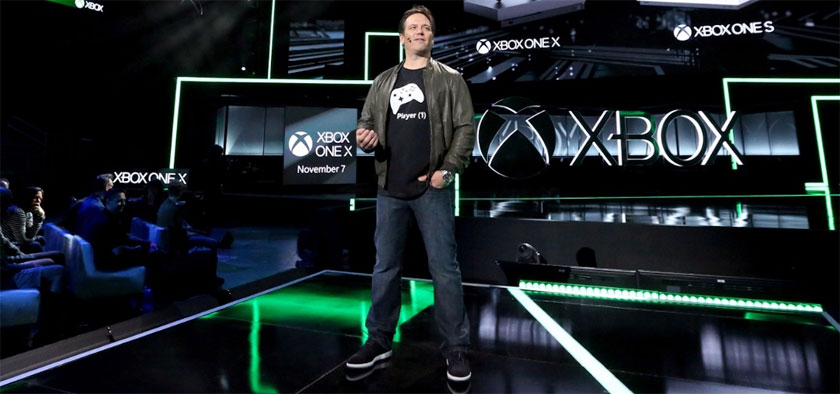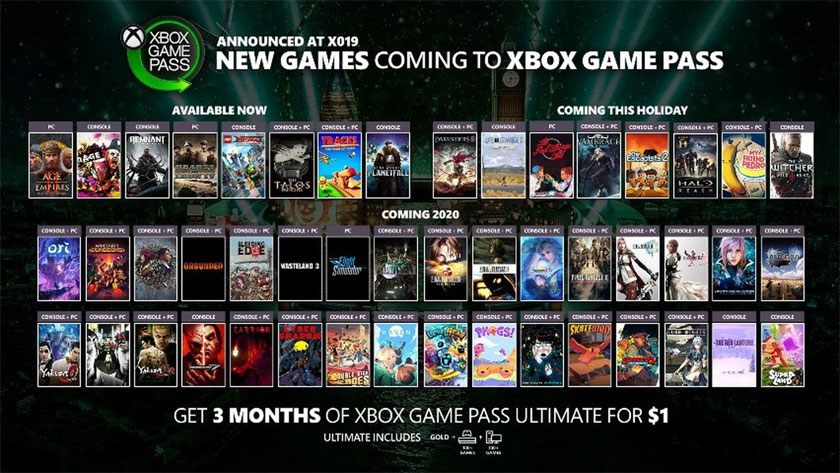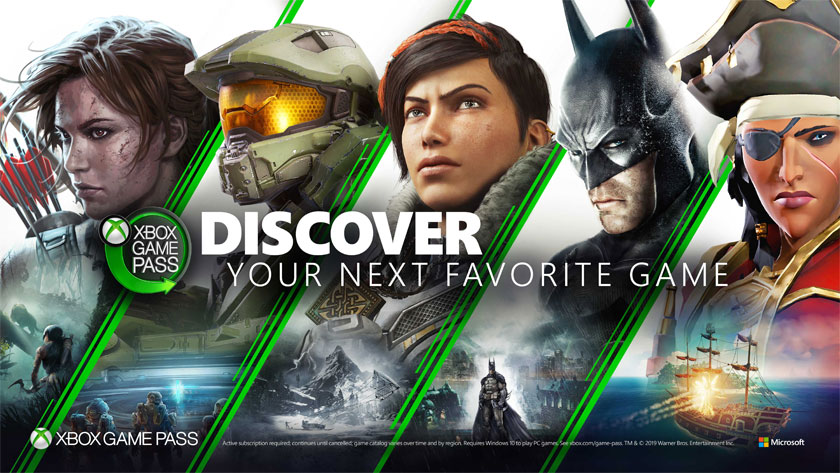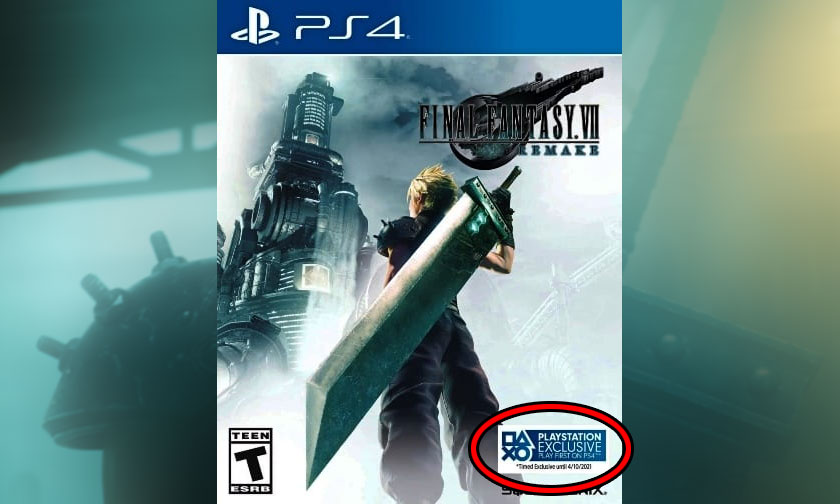Microsoft vs. Sony: Anticipating E3 2021

Despite having been removed from the constant snark of social media for some time now, I cannot help but feel cynical and sarcastic during most consumer-oriented gaming events. Be it the Video Game Awards or E3 press conferences of years past, I find my face buried in my hand during some overpriced performance engineered to desperately generate excitement in the crowd in the most embarrassing fashion possible. At best, half of the game announcements in any presentation put on by the likes of EA, Ubisoft, Microsoft, and Sony are not only of complete disinterest to me, but poking at my disdain for AAA gaming trends.
Yet I, like many other Millennials whose primary caretaker was the television and game consoles of their youth, have taken mass media consumption up as a hobby, decorated with pompous and pretentious over-thinking disguised as intellectual analysis and study. In a world where leisurely entertainment can be considered a hobby, the bread and circuses equivalency becomes not the media itself, but the announcement and promise of even more media in the future. Chasing the ever elusive feeling of happiness, it is a rapturous spell that events like E3 promise, allowing us to salivate over and dream of the games that are to come.
This year, I must confess to an additional interest: the potential future movements of Microsoft in the wake of Sony’s apparent shift in priorities. Though it is nowhere near as great as the hubris the company possessed when entering the seventh generation of consoles with the PlayStation 3, I feel Sony is sitting far too comfortably atop their current gaming throne. We don’t have concrete sales data to suggest either side is “winning”, and such sales data is unreliable as all corporations are running on limited supply due to Covid-related restrictions. All we know is that both systems regularly sell out swiftly any time they are back in stock. One could perceive, then, that now is the time for Microsoft to strike.
However, as many are already aware, Microsoft isn’t aiming to bring players to their next-gen consoles. Not exclusively, at least.
Interviews with Phil Spencer are interesting. I admittedly don’t know enough about the guy to say whether he is or isn’t definitively a gamer or business man, but he certainly comes off as being both during interviews. He’s that rare sort of executive that actually understands the medium he’s been put in charge of without sacrificing the perspective necessary to make a profit. It looks as if he was promoted after the early days of the Xbox One proved to be a disaster, and in the linked Game Reactor interview he very politely acknowledges the internal struggle with what most fans knew: that there were suits at Microsoft trying to turn their first-party studios into franchise factories rather than letting them make good games.
If I think back during the early Xbox One years and even late in the 360 years, at this time we as a company didn’t invest enough in our creative capabilities with our studios, and it showed. Now, the thing with game production is that it takes a lot of time, so if you underinvest it actually doesn’t show up next year or even in the next two years. It’s maybe three, four, or five years down the road.
I had this feeling or belief that we were underinvesting and I was head of first-party, so I felt it directly. I wanted to invest more, and we weren’t able to. So when I got into this job, I needed to put the business in a good space while getting the support of the company.
He’s definitely avoiding throwing anyone under the bus, but this reads as a confirmation that Microsoft did not understand how to properly leverage their talent in order to compete. Promoting Phil Spencer seems to have been the right move, though my skepticism and negativity towards Microsoft’s every move would persist. After all, Phil Spencer is likely one of the minds behind – or at least directing the course for – Xbox Game Pass.

Could it be that this man actually has some idea of what he’s doing?
I’ve spoken about it on the podcast, but Xbox Game Pass is just another in a long line of “services” that takes ownership out of the hands of the player and puts games preservation at risk. While Microsoft currently seems to be interested in preserving old games through backwards compatibility, they could swiftly lose interest once they no longer need it as a selling point over their competitors. Not only are there plenty of Xbox 360 games without official backwards-compatible support – Project Sylpheed being a personal favorite that has gone ignored for years – but plenty of titles are simply not available for purchase on digital storefronts altogether. Alpha Protocol is a game I can only revisit thanks to possessing the physical disc. You can no longer purchase it online for any platform it was released on.
The immediate mainstream acceptance of digital streaming platforms and purchases is, to me, a short-sighted approval of convenience for the sake of easy consumption. It’s no wonder that Microsoft had tried to treat their first-party studios like game factories, pressing new disc after new disc as if there were a guaranteed formula for success so long as you had the IP. When the majority of your audience gleefully gulps down media as gluttonously as cheap McDonald’s cheese burgers, you stop thinking of the art you’re creating as anything more than cheap wickets. Or, to perhaps illustrate it in a slightly less insulting manner, I am Remy in this clip from Ratatouille trying to convince your average media consumer – represented by Remy’s brother Emille – that there’s more to games, film, and television than burning through each title as fast as possible in order to move onto the next piece of media.
Even Phil Spencer’s words – once more quoted from the interview – suggest this sort of “conveyor belt” approach to media.
So for us, having games in the subscription that have a beginning, middle, and end, and then they go on to play the next game, maybe those are single-player narrative-driven games, I just finished Tell Me Why, an amazing game from DontNod, those games can be really strong for us in the subscription.
When I wrote about The Medium earlier this year, I described it as the “perfect Game Pass game”. It was not a bad game, but it did not feel like an experience I’d have been satisfied putting a lot of money down for. Playing it does not feel like a waste of time, but it does not feel worth the monetary investment. In other words, a perfect title for that “consumption” based approach to media that I have such a negative perception of.

While I still distrust the latest trend in Cloud-gaming subscription services, the past few months have led me to question my negativity towards Game Pass. With it, I was able to play through the critically acclaimed Witcher 3. I was also able to play through indie retro-inspired games The Messenger and Cyber-Shadow. I’ve been able to stream the Halo 4 campaign with my friend Zack without having to purchase the entire Halo library a second time. I discovered more of Team Ladybug’s excellent work with Touhou Luna Nights. In fact, I have purchased the latter on Steam in order to increase the odds that I “keep” it somehow. I also used Game Pass to play through Yakuza Kiwami 2 last year, and plan to progress to the remainder of the series soon. This is also in the wake of having immediately purchased Blue Fire and Shattered: Tale of the Forgotten King day one, finding the former to be adequate but also frustrating and lacking in polish, and the latter to have been relatively not enjoyable. Games that would have been far more suited to trying out on Game Pass.
In other words, Game Pass doesn’t have to be about consumption. It can be about placing better bets as to where my money goes. Or, to put simply, it’s about “value”.
It is in this perception of “value” that Phil Spencer is competing, and unlike companies such as Google and their streaming-only Stadia service, they are taking inspiration not from Netflix’s delivery methods, but a vast array of content. Let’s take a look at another Phil quote:
If we look at what people are playing on Xbox, what Game Pass subscribers are playing, I think what is missing from our portfolio is casual content with a broad appeal. E-rated content (to use an ESRB rating) is not a strength for us. We obviously have Minecraft and we have some other franchises. But when I think about expanding the creative palette that our teams have, I think that is critically important.
While Phil’s conundrum can be perceived as an industry-wide issue – where mature content outnumbers content for children and families – he is recognizing the necessity of Game Pass to appeal to as broad a scope as possible. If you dig down into Netflix’s massive library of film and television, you’ll find something for everyone no matter your demographic. There will be film and television for those with stereotypical “progressive” tendencies as well as those with stereotypical “conservative” tendencies. They have documentaries on socio-political issues, historical wonders, and individuals. They have dramas for all possible walks of life and a slew of children’s entertainment. They host comedian stand-up specials for a variety of talents. There’s an assortment of anime, Korean dramas, and other niche entertainment for those seeking something outside of the norm of Western television.
While Microsoft has certainly obtained studios in the hopes of competing against Sony’s first-party releases, I imagine the real intent in purchasing and acquiring so many developers – including the massive purchase of ZeniMax and, therefore, Bethesda Games and subsidiaries – has more to do with guaranteed variety and value for Game Pass. After all, Microsoft is building all of their first-party titles to release on PC as well as Xbox. They aren’t using the first-party titles to entice you to purchase their console hardware. The console hardware exists in tandem with the PC in order to provide more options for getting on their subscription service.
Microsoft is clearly not relying exclusively on first-party titles to provide this value. While there are plenty of indie titles releasing day one on Game Pass, including S.T.A.L.K.E.R. 2 and recently reported The Riftbreaker, last month saw the release of both Outriders and MLB The Show 21 on the service on their respective launch days. These are notably larger titles from significantly sized publishers, and it indicates that Microsoft is aiming to score more major third-party games on their service on Day One. Rumors abound that there’s going to be a third-party first-person shooter releasing this Fall on Xbox One. With Microsoft recently teaming up with EA to provide EA Play games on Game Pass, could this mean the availability of Battlefield 6 to subscribers on launch day?

This is speculation on my part, but it’s why I’m so excited about E3 this year. Microsoft has been backed into a corner for a long time, and with Phil Spencer at the helm it seems like they’re getting ready to start swinging. They’ve acquired a large number of first-party studios under their umbrella, and they are seeking to expand the value of Game Pass through a wide variety of first- and third-party gaming content. Also significant is Phil’s recognition and desire to earn the trust of the Japanese industry and players. Not only has Microsoft pushed to feature games like Devil May Cry 5 at their presentations and to promote Bandai Namco’s Scarlet Nexus, but they’ve been filling their catalogue with titles like the Yakuza franchise, the aforementioned Touhou Luna Nights, Dragon Quest XI S, and various entries in the Final Fantasy series. These deals are not permanent – the Kingdom Hearts series will be expiring soon, if it hasn’t already – but they certainly provide value not only to Japanese players, but fans of Japanese games.
Sony, by contrast, has drastically reduced their Japan Studio following the “canary in a coal mine” departure of significant talents, producers, and leads. The slang term Sony Check is seeing a revival – especially in Japan – due to Western values interfering with domestic development of Japanese games, likely as a result of moving their PlayStation headquarters out of Japan and into California. Their efforts to stay competitive on the Japanese front is to purchase (timed) exclusivity onto their platform. Early in April, Jason Schreier reported on Sony’s heavy leanings on Naughty Dog in terms of development and prestige, often to the detriment of other studios’ ideas, goals, and desires. While there have been many to notice Sony moving in a particularly cinematic direction following the success of The Last of Us at the conclusion of the PS3 lifecycle, this seems to be confirmation that Sony is, in fact, going the opposite direction as Microsoft in terms of variety of content.
It is for this reason that this year’s E3 excites me. Xbox 360 launched in such a good state in part due to being the hungry underdog. Sony, in comparison, expected their fans to remain unquestioningly loyal and purchase their system due to the brand logo. By the beginning of the next generation, roles had been reversed with Xbox players abandoning ship for the PlayStation 4. Now, these signs do not indicate that Sony is quite as conceited or complicit as with the PlayStation 3, but it’s also clear that the new head of Sony Worldwide Studios Herman Hulst is not the same kind of savvy, game-loving businessman as Phil Spencer seems to be. He’s making decisions that are very America-centric – and of a particular leaning at that, hardly representative of the whole population – and is favoring select studios and their output rather than focusing on a truly diverse portfolio.

Should it really take more than a year for a major publisher to release a (planned) port to PC and Xbox?
It’s also important to note how competitive yet consumer-fair day one Game Pass availability is for a third-party title as opposed to bought platform exclusivity – even if it is timed. After all, Final Fantasy VII Remake should have lost its platform exclusivity by now, yet the upcoming Intergrade version could have been used to extend that exclusivity into the next-generation. This could mean anyone without a PlayStation branded system is locked out of the game, including on PC, for even longer. Admittedly, it is just as likely that a PC port announcement is coming later this year and simply has not been ready for release on PC. Nonetheless, the timing is suspicious, and it feels as if the game is being held hostage by Sony in order to boost system sales.
On the other hand, the availability of Outriders for Game Pass subscribers on Xbox consoles on launch day did not lock players out from purchasing the game on Steam or PlayStation. There’s incentive to play it on Xbox if you have Game Pass, but no one is punished through outright denial.
As third-party platform exclusivity increasingly becomes viewed as consumer-antagonistic, Game Pass will, in comparison, seem all the more friendly to consumer interests. Not only are they giving you so many games to choose from for a comparatively small fee, but they don’t prevent anyone without an Xbox or gaming-capable PC from purchasing the title elsewhere. The only exception is for first-party exclusives.
As a result, I’m curious to see if Microsoft’s third-party strategy is going to become increasingly more aggressive at this year’s E3. It’s a given that we’ll see new footage of Halo: Infinite, a new entry in the Forza series, and games like Senua’s Saga: Hellblade 2 and Psychonauts 2. We already know they’ll be available on Game Pass for as long as the service exists. The real question is whether we’ll see Tales of Arise launching on Game Pass day one. Or, perhaps, even a hotly anticipated title such as Elden Ring.
I do not necessarily want Microsoft to “win” the upcoming console war. This has nothing to do with victors, as I’m sure it’s only a matter of time before Microsoft swaps leadership out, shoves Phil Spencer elsewhere, and recruits a group of clueless suits again. Simultaneously, I recognize Game Pass as a stereotypically Microsoft tactic of enticing customers onto their ecosystem in order to try and lock them into a monopolistic environment. For the time being, however, I cannot help but admire their strategy to provide a wide library of games, both first- and third-party, that can be enjoyed either on their console or on PC. Sony, comparatively, feels antagonistic not only towards me as a consumer, but as a fan of Japanese games as well.
To that end, I’m hoping Microsoft can deliver a strong uppercut to Sony’s jaw this E3 in order to force the company to better compete.


